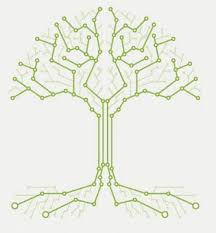
This course examines how digital infrastructures, online cultures and social practices intersect to shape public narratives about credible knowledge in contemporary societies. It focuses on how today's information environments are simultaneously structuring, and structured by, technology, social actors, and epistemic norms. As a reading seminar, the course is built around three recent scholarly books that will be read and interrogated in detail. Over four in-person sessions with compulsory attendance and asynchronous work in between, we will follow the citations, explore the case studies, and connect insights to adjacent scholarship. Students are expected to do significant work at their own pace in between sessions.
- Dozent/in: Anna Jobin
Context
The digital technologies effect a fundamental change in our society, including its law. Not only does the law have to provide new answers to the arising questions (e.g how to protect personal data? What limits are there to the governmental use of face-recognition? How to enable a sustainable digital economy?) but more generally, it has to contribute to a digital order that on the one hand lets us reap the benefits of the new technologies while on the other hand protecting the individuals as well as society as a whole from negative consequences of the spread of these technologies. The challenges are manyfold, and we are currently still at the very beginning of a legal digital order – the shape of which is at the moment not yet clear.
Objective
In order to understand the challenges that the law faces, we first have to have an understanding of the functions that the law fulfils in society and the mechanisms through which the law accomplishes these functions (I). This will provide the foundation of the second part (II), where we will be addressing some of the specific aims that the law on digital phenomena pursues, such as the protection of individuals and the society but also the regulation of AI and the digital economy. This will then allow us to shift the perspective and assess current and new legal mechanisms. By doing this, we will be able to trace the evolution of the law as it adapts to the digital society (III). Throughout the course, we will apply the gained understanding on simple cases and study current relevant examples from real life.
- Dozent/in: Mark Drenhaus
